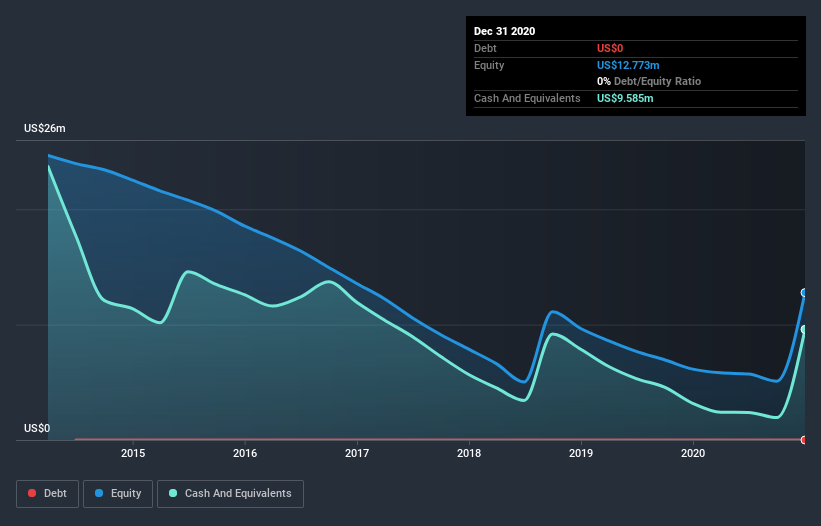Here's Why We're Not At All Concerned With Isoray's (NYSEMKT:ISR) Cash Burn Situation
Just because a business does not make any money, does not mean that the stock will go down. For example, although software-as-a-service business Salesforce.com lost money for years while it grew recurring revenue, if you held shares since 2005, you'd have done very well indeed. But while the successes are well known, investors should not ignore the very many unprofitable companies that simply burn through all their cash and collapse.
So, the natural question for Isoray (NYSEMKT:ISR) shareholders is whether they should be concerned by its rate of cash burn. For the purposes of this article, cash burn is the annual rate at which an unprofitable company spends cash to fund its growth; its negative free cash flow. We'll start by comparing its cash burn with its cash reserves in order to calculate its cash runway.
View our latest analysis for Isoray
How Long Is Isoray's Cash Runway?
A company's cash runway is calculated by dividing its cash hoard by its cash burn. When Isoray last reported its balance sheet in December 2020, it had zero debt and cash worth US$9.6m. Looking at the last year, the company burnt through US$3.1m. Therefore, from December 2020 it had 3.1 years of cash runway. There's no doubt that this is a reassuringly long runway. The image below shows how its cash balance has been changing over the last few years.
How Well Is Isoray Growing?
We reckon the fact that Isoray managed to shrink its cash burn by 35% over the last year is rather encouraging. Revenue also improved during the period, increasing by 18%. Considering the factors above, the company doesn’t fare badly when it comes to assessing how it is changing over time. Clearly, however, the crucial factor is whether the company will grow its business going forward. For that reason, it makes a lot of sense to take a look at our analyst forecasts for the company.
How Hard Would It Be For Isoray To Raise More Cash For Growth?
There's no doubt Isoray seems to be in a fairly good position, when it comes to managing its cash burn, but even if it's only hypothetical, it's always worth asking how easily it could raise more money to fund growth. Issuing new shares, or taking on debt, are the most common ways for a listed company to raise more money for its business. One of the main advantages held by publicly listed companies is that they can sell shares to investors to raise cash and fund growth. We can compare a company's cash burn to its market capitalisation to get a sense for how many new shares a company would have to issue to fund one year's operations.
Isoray has a market capitalisation of US$222m and burnt through US$3.1m last year, which is 1.4% of the company's market value. That means it could easily issue a few shares to fund more growth, and might well be in a position to borrow cheaply.
Is Isoray's Cash Burn A Worry?
As you can probably tell by now, we're not too worried about Isoray's cash burn. For example, we think its cash runway suggests that the company is on a good path. And even though its revenue growth wasn't quite as impressive, it was still a positive. Looking at all the measures in this article, together, we're not worried about its rate of cash burn; the company seems well on top of its medium-term spending needs. On another note, Isoray has 2 warning signs (and 1 which is significant) we think you should know about.
Of course Isoray may not be the best stock to buy. So you may wish to see this free collection of companies boasting high return on equity, or this list of stocks that insiders are buying.
This article by Simply Wall St is general in nature. It does not constitute a recommendation to buy or sell any stock, and does not take account of your objectives, or your financial situation. We aim to bring you long-term focused analysis driven by fundamental data. Note that our analysis may not factor in the latest price-sensitive company announcements or qualitative material. Simply Wall St has no position in any stocks mentioned.
Have feedback on this article? Concerned about the content? Get in touch with us directly. Alternatively, email editorial-team (at) simplywallst.com.

